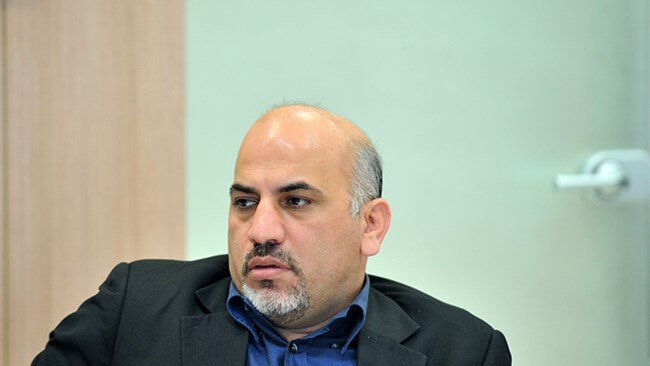
‘Private sector able to contribute to electricity exports to neighbors’

According to Hamidreza Salehi, Iran is currently exporting 1500 megawatts (mw) of electricity to Iraq and the figure is bound to fall in the future considering Iraq’s plans for renovating its infrastructure.
“So now, the government should use the capacities of the private sector in electricity generation, exports and investment in both Iraq and Afghanistan,” Salehi stressed.
The official mentioned Iranian Energy Minister Reza Ardakanian’s remarks about the country’s plans for boosting electricity exports to Afghanistan under the framework of the two sides’ energy agreements, saying the government should not ignore the important role of the private sector in its future plans.
“Currently, the private sector is active in all the fields of electricity industry from generation to distribution and this capacity can also be used in exporting electricity to the neighboring countries, he said.
Given the private sector's current capacity of generating 82,000 MW of electricity, it is obvious that it has the power to contribute to the country’s electricity exports to regional countries such as Iraq and Afghanistan.
According to the official, several trade delegations have been exchanged between Iran and its neighbors and the Iranian private sector have held several meetings with their foreign counterparts and are able to also cooperate in other areas like engineering and knowledge transfer.
As the biggest exporter and importer of electricity in the Middle East, Iran plays a central role in power supply in the region.
It exports electricity to Pakistan, Turkey, Iraq and Afghanistan, and also under swap deals, Iran exports electricity to Armenia and Azerbaijan in winter and imports in summer.


Trump weighs using $2 billion in CHIPS Act funding for critical minerals

Codelco cuts 2025 copper forecast after El Teniente mine collapse

Electra converts debt, launches $30M raise to jumpstart stalled cobalt refinery

Barrick’s Reko Diq in line for $410M ADB backing

Abcourt readies Sleeping Giant mill to pour first gold since 2014

Nevada army depot to serve as base for first US strategic minerals stockpile

SQM boosts lithium supply plans as prices flick higher

Viridis unveils 200Mt initial reserve for Brazil rare earth project

Tailings could meet much of US critical mineral demand – study

Kyrgyzstan kicks off underground gold mining at Kumtor

Kyrgyzstan kicks off underground gold mining at Kumtor

KoBold Metals granted lithium exploration rights in Congo

Freeport Indonesia to wrap up Gresik plant repairs by early September

Energy Fuels soars on Vulcan Elements partnership

Northern Dynasty sticks to proposal in battle to lift Pebble mine veto

Giustra-backed mining firm teams up with informal miners in Colombia

Critical Metals signs agreement to supply rare earth to US government-funded facility

China extends rare earth controls to imported material

Galan Lithium proceeds with $13M financing for Argentina project

Kyrgyzstan kicks off underground gold mining at Kumtor

Freeport Indonesia to wrap up Gresik plant repairs by early September

Energy Fuels soars on Vulcan Elements partnership

Northern Dynasty sticks to proposal in battle to lift Pebble mine veto

Giustra-backed mining firm teams up with informal miners in Colombia

Critical Metals signs agreement to supply rare earth to US government-funded facility

China extends rare earth controls to imported material

Galan Lithium proceeds with $13M financing for Argentina project

Silver price touches $39 as market weighs rate cut outlook

















